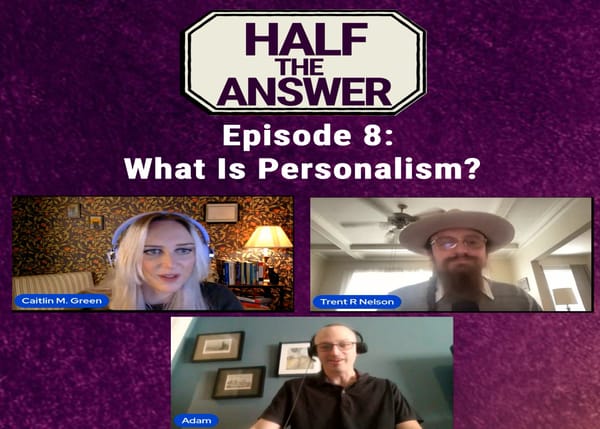Culture War Fragility

The criticisms of Robin DiAngelo and her book White Fragility have been intense, even by culture war standards. There are lots of reasons DiAngelo’s controversial book is receiving so much blowback, and some of those concerns are legitimate. White fragility, when deployed in debates as a form of psychologizing about the person you’re arguing with, is generally unproductive and is likely to exacerbate resistance. There comes a risk of a kafkatrap if the view is taken to the extreme where any criticism of the view is treated as evidence of white fragility. DiAngelo also gives a flawed analysis of the story of Jackie Robinson, contributing to the impression that she suffers from the common “when all you have is a hammer, everything looks like a nail” syndrome.
With all those objections affirmed, I believe white fragility, defined as a common resistance amongst white folks to racial discourse, is likely a real phenomenon, and it seems to me that critics of DiAngelo go too far in denying that fact. I think it would be surprising if white fragility weren’t real, given all the forms of cognitive fragility that we readily acknowledge every day. Fragility, broadly speaking, is the various sorts of resistance reactions that folks slip into when they feel threatened. In the spirit of synthesis, I want to present a brief account of several kinds of “culture war fragility” that I think anyone with any experience of this discourse will find plausible, and then suggest how white fragility fits into that picture as one fragility amongst many. It seems to me that fragility is a problem on all sides in the culture war, but that isn’t the same as saying it is distributed equally across all groups engaging in these conflicts. All I’m arguing here is that it is easy to identify behavioral responses in each group that justify concerns of fragility.
A Twitter search turns up several defenses of concepts like “social justice warrior fragility” and “woke fragility.” Substantial work has gone into arguing that social justice warrior fragility is a huge problem. Flagships like Fox News and Jonathan Haidt’s Coddling of the American Mind lead an armada of media resources, all making the argument that those on the front lines of the social justice fight are pathologically incapable of being challenged on their views and will use any means necessary to protect their dogmas from the threat of disagreement. White fragility itself is commonly pointed to as an example of the sort of debate silencing techniques that certain people use when they feel threatened. Critiques about safe spaces, trigger warnings, microaggressions, and deplatforming all carry the implication that social justice warrior fragility is real. The accusation “you’re just afraid to look at the science” frequently stands in as an accusation that some on the left are too fragile to cope with the collision between their feelings and facts. I think the catastrophizing that has built up around social justice warrior fragility is often detrimental to legitimate criticisms. I also think that social justice warrior fragility is an observable and testable phenomenon. It seems absurd to me to suggest otherwise. Folks who believe social justice warrior fragility exists can easily supply their favorite examples of their opponents swinging at terrible pitches and reacting in fragile ways when challenged.
Rather than deny the existence of social justice warrior fragility, we should analyze it into its various forms and then treat the problem. We should develop ways to help people distinguish between fragility that arises from sources like trauma and the kind of fragility that arises from the fear of losing face because you don’t fully understand a concept you’re trying to deploy in a debate. Analysis of this sort is valuable for figuring out how best to address specific cases of fragility. For example, if the fragility is the result of a hostile and unjust environment, it is likely insufficient to tell the person that introspection alone will fix the issue, when changes to the system would likely remove the source of the fragility much more effectively. Anti-social justice warriors should not use the existence of social justice fragility to dismiss legitimate social criticisms. While it may be healthy for the person to develop their ability to cope with injustice, that must be combined with addressing the injustice itself. Simply telling the person to toughen up and accept the world isn’t appropriate. It’s also likely to reinforce their fragility.
Everything I’ve said so far about social justice warrior fragility applies, mutatis mutandis, to anti-social justice warrior fragility. The reactions to DiAngelo are just the latest in a rich tradition of people raising the alarm when asked to introspect about their reactions in emotionally charged culture war situations. It’s a common theory amongst anti-social justice warriors that Trump won because he harnessed anti-social justice warrior fragility that the GOP had been stoking in its base since the civil rights era. Setting aside the misplaced responsibility part of that argument, there is something to the empirical claim that racial and cultural animus was driving the economic anxiety, rather than the other way around, in the minds of Trump voters.
I believe white fragility is just one flavor of anti-social justice warrior fragility. Other flavors include the kind of gender critical fragility we’ve seen recently from J.K. Rowling and the toxic masculinity fragility that was on display during Gamergate and in response to Kate Manne’s Down Girl. Again, the existence of these kinds of fragility is compatible with raising and debating legitimate critiques of all of these issues. Fundamentally, these kinds of fragility seem indistinguishable from the broader kinds of cognitive fragility that modern psychology continues to reveal and that provide the driving motivation for healthy skepticism about both introspection and how the world “really is.” Skeptics know full well the discomfort that cognitive dissonance brings and the very human reaction to avoid that dissonance through a million little tricks. We should be the first to acknowledge that blowback effect is a real thing and that even well-trained minds are often just a few bad experiences away from maximum fragility. Take the fact that everyone is feeling fragile and justified in their anger these days, add in social media that puts us in an endless thunderdome of justifying ourselves to strangers, and you get the modern culture war crisis in full bloom.
The healthy alternative to fragility is cognitive flexibility. By cognitive flexibility, I mean the ability to restructure one’s understanding to accommodate new information with little resistance. Flexibility, like fragility, can come in many different forms, and the development of flexibility is a lifelong project. Both social justice warriors and anti-social justice warriors already place a premium on certain kinds of cognitive flexibility. Decoupling is a kind of cognitive flexibility prized by anti-social justice warriors, where the goal is to get better at incorporating new arguments while managing resistance directed at related concepts. Similarly, the Millian goal of being able to hold two competing arguments in your mind at the same time and give them equal consideration—actually engaging in the marketplace of ideas—requires high levels of cognitive flexibility.
Meanwhile, social justice warriors value a kind of flexibility that allows them to incorporate new information about inequity that is often depressing and personally confronting. “Woke,” in the non-derogatory sense, means having awareness of the narratives that drive our culture and enough cognitive flexibility to not get trapped in those narratives. I believe the necessary synthesis of these views will involve the incorporation of all these kinds of flexibility in a balance that reduces inequity and promotes flourishing.
I should note, cognitive flexibility is not equivalent to subjectivism or a wishy-washy approach to life. Social justice warriors do not cure their fragility by just becoming maximally accepting of whatever criticisms are lobbed at them, and vice versa. Not all criticisms are legitimate, but making room in your worldview for the legitimacy of other people’s grievances does not mean abandoning the legitimacy of your own. In a healthy mind, flexibility must be balanced with the kind of solidifying of understanding that comes with personal growth, including solidifying around moral foundations like respect for persons. Many wisdom traditions talk about the challenge of remaining cognitively flexible while living in a world that also requires cognitive and behavioral firmness. Taoists like to compare people to trees, who go from young and flexible to old and brittle. Even a fully grown healthy tree must maintain enough flexibility to survive storms. Neuroplasticity, a potential physical correlate of cognitive flexibility, naturally decreases with age, but there’s evidence that consistent practice in cognitive flexibility can help people maintain more plasticity later in life. Claiming fragility isn’t a problem in the first place will make that process much more difficult.
Ultimately, it seems equally as odd to deny the existence of white fragility as it does any of the other kinds of fragility discussed above. There are just too many experiences out there bearing their mark. We may not be able to prove, in the middle of a debate, that someone else is reacting from a place of fragility, but we can get better at being honest with ourselves when we’re doing just that. If we’re going to make progress on the culture war, we’re all gonna need to work on our own fragility.
Featured Image is The Scream, by Edvard Munch




